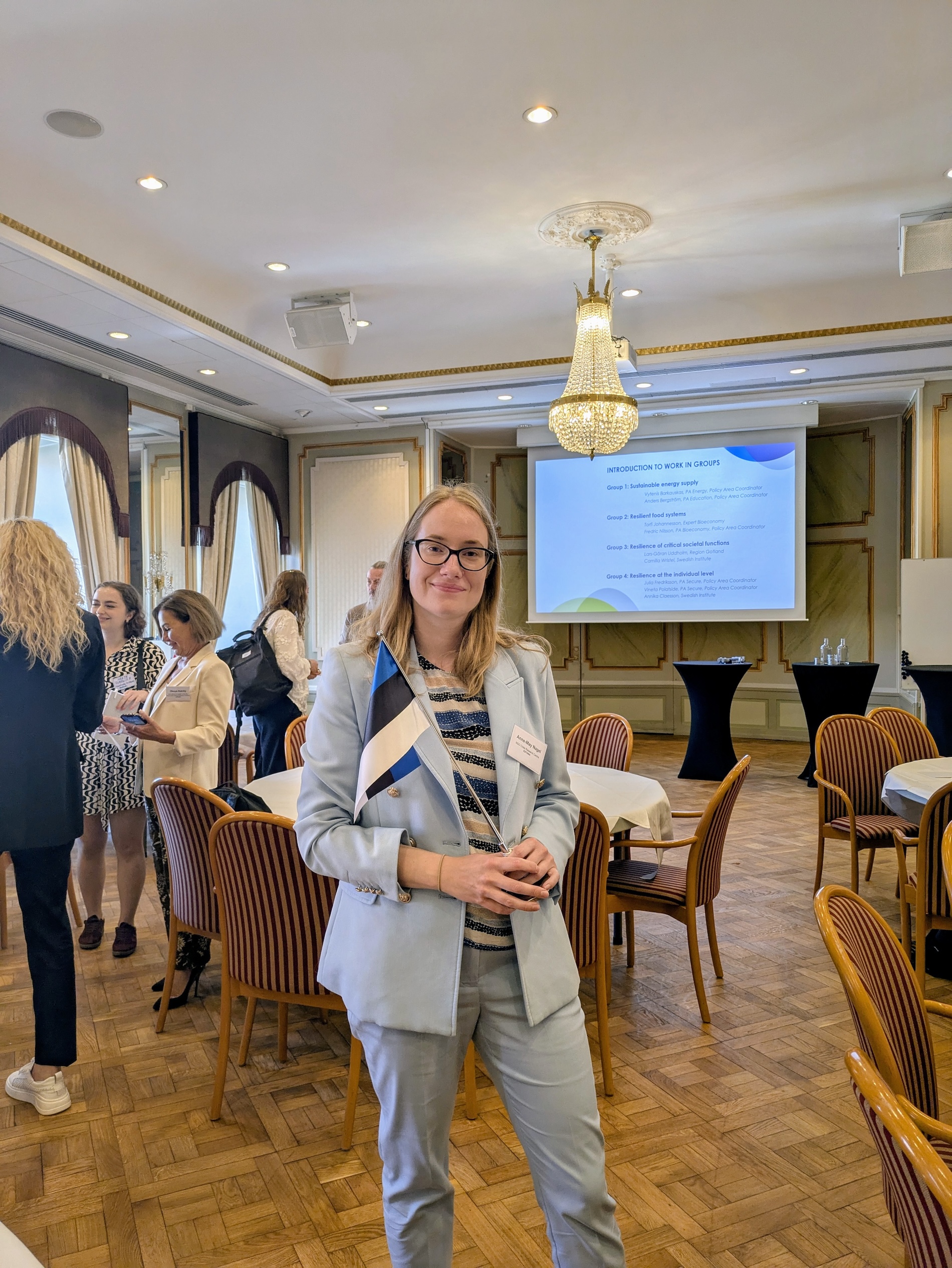
Crisis Research Centre represented Estonia at follow-up meeting on crisis preparedness and resilience in Gotland
Throughout the three-day programme, participants engaged in workshops, presentations, and discussions exploring how governments, institutions, and communities can better anticipate and respond to crises. The Crisis Research Centre took part in a working group dedicated to individual-level preparedness, sharing insights from Estonia’s community-based resilience initiatives.
Our representative and co-founder Anne-May Nagel stated: “In our presentation, we shared the experience we’ve gained over two years while running some of the largest community-based civil protection projects in Estonia. We also introduced the newly published English-language version of our crisis preparedness handbook for apartment building communities and discussed how the rising cost of living directly impacts people’s ability to prepare for crises.”
As the EUSBSR Action Plan is currently being revised, the meeting also provided an opportunity to influence future priorities. The Crisis Research Centre contributed input to the PA Secure policy area, emphasising the importance of local engagement, equity in preparedness, and science-based planning.
The event was organised by the Government Offices of Sweden, the Swedish Institute, Region Gotland, Foreningen Norden, and Gotlands Län. Their collaboration ensured a meaningful and well-rounded platform for regional cooperation, where both grassroots perspectives and institutional strategies were given space.
By actively participating in this international meeting, the Crisis Research Centre helped ensure that the community-based approaches to crisis resilience are shared, heard, and integrated into broader regional dialogue.
🟧🟦 Our participation in the forum was supported by the Estonian Ministry of the Interior through the National Foundation for Civil Society as part of the Haabersti community-based civil protection K-24 project.
Photos: Gotland forum (Crisis research Centre, 2025).
Jaga postitust:
